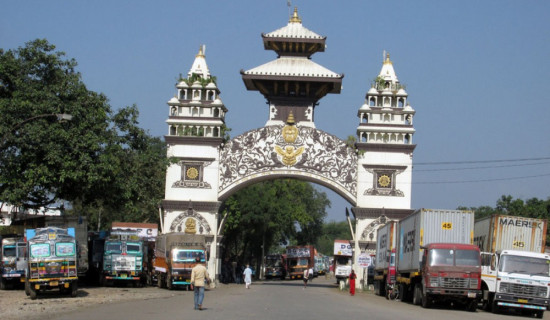- Sunday, 15 February 2026
Media Vital For Rights Protection
Human rights are rights inherent to all human beings, regardless of race, sex, nationality, ethnicity, language, religion, or any other status. Human rights include the right to life and liberty, freedom from slavery and torture, freedom of opinion and expression, the right to work and education, and many more. Every human being is entitled to this without discrimination. The Universal Declaration of Human Rights was adopted by the UN General Assembly in 1948.
Business is an organisation or entity that sells goods or services for profit. There are concepts of not-for-profit business and social enterprise too. But whatever the objectives of all these entities, they exist to offer goods and services. According to Article 19 of the United Nation’s declaration of Human Rights, everyone has the right to freedom of opinion and expression. This right includes freedom to hold opinions without interference and to seek, receive and impart information and ideas through any media.
Governments have a control over what they want to make public. However, freedom of press and speech is very important for democracy. Nepal established freedom of press in 1990. So what has been the role of media in promoting human rights? Media refers to all forms of communication that share information, whether it is news, entertainment, or advertising. This could include books, newspapers, photography, television, websites, and in today’s world the social media platforms.
The traditional or old media also termed as the legacy media includes the print media, radio broadcasting, and television. Mainly the old media is referred to the system that existed before 1990s. The modern day media is termed as the new media. The Technopedia defines it as “various kinds of electronic communication that are conceivable due to innovation in computer technology." This includes websites, blogs, vlogs, social media, and podcasts. In this digital age, most of the legacy media have also expanded into the new media; therefore, many a times there could be a confusion on what is old media and new media. A blend of both is the need of today.
A key element in establishing human rights is media. In this digital age, with the presence of both old and new media, one needs to explore what is actually the media’s role and responsibility in becoming a tool of human rights. With the combination of both the media, while promoting business of the corporate sector, it is important to identify where human rights promotion falls? Does it take a back seat?
Without information, the people will not know what’s happening anywhere, be it locally, nationally or globally. Lack of information incapacitates humans to be able to respond to laws, policies, and events, including violations of human rights. Lack of information could lead to people not realising that they have rights to stop any atrocities against them which could be atrocities due to promotion of implementation of certain businesses in their community or elsewhere but which impacts their lives. Free media has a responsibility to share information and help explain that information to the public. It also has the responsibility to hold people in power accountable to the general public.
The role of business enterprises as specialised organs of society for performing specialised functions is to comply with all the applicable laws and to respect human rights. However, even after more than 70 years of UN adoption of the Declaration of Human Rights, there is still rampant human rights violations. On 16th July 2011, the Human Rights Council endorsed the Guiding Principles on Business and Human Rights: Implementing the United Nations “protect, respect and remedy” framework in its resolution 17/4. Nepal Government is currently finalising the National Action Plan to implement this resolution.
The essence of media is to put true and factual data to the general public. However, how are these facts and information perceived by the public? One current and most important issue impacting the lives of people every day is climate change. Climate change has implications for the basic fundamental rights of people to food, development, housing and all aspects of life itself. According to an article carried by Nature Climate Change website, at least 85 per cent of the world is affected by human-induced climate change. The World Health organisation estimates that from 2030-2050, climate change will cause around 250,000 additional deaths each year.
Although the media coverage about climate change is seen every now and then, it will not be an exaggeration that the coverage may not have been done with appropriate concerns.
Human-induced climate change can range from eroding the earth, depleting water and mineral resources, human trafficking and a series of direct and indirect abuse of earth and living organisms, all of which have impacts on human rights.
Significant role
There is no simple answer to how media can work to protect and not harm human rights. But based on the different interests of businesses, media is often used to play a significant role regarding human rights for better or for worse. There are journalistic ethics and standards that mainly focus on seeking the truth and reporting, and be accountable and transparent. Most responsible media outlets follow these ethics and standards. Those media that do not abide by these standards and ethics are irresponsible media.
In the process of exposing human rights abuses, many journalists have lost their lives. According to UNESCO in 2021, 55 journalists were killed. Journalists also face a high rate of physical violence, intimidation, harassment and imprisonment. Women journalists are at increased risk of online harassment. When Nepal government is in the process of finalizing the action plan on business and human rights now, it is important to look at these aspects. But the most important issue is to make sure the action plan gets implemented and not put into inaction for long stretches of time.
(Namrata Sharma is a journalist and women rights advocate. namrata1964@yahoo.com Twitter handle: @NamrataSharmaP )

















